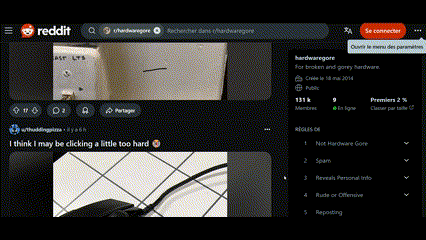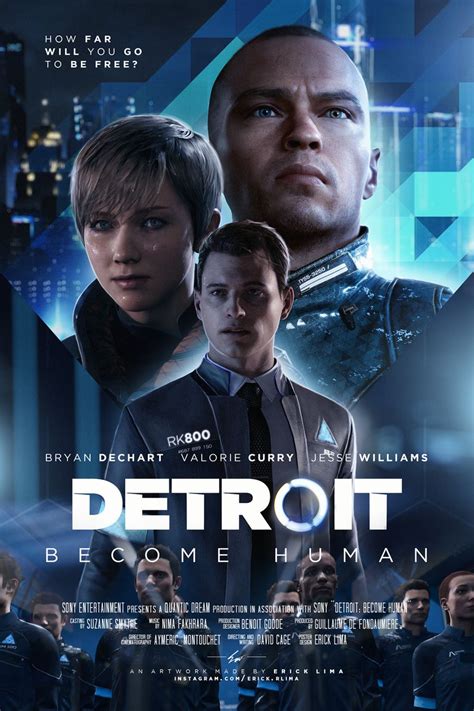MTF : Machine to Flesh
Maybe that’s what happened to our tech, maybe they were people in another life, their past life?
When I see a bunch of cables coming out from a machine, I feel for them.
Machines are not weak, but they’re vulnerable. We take our anger toward them.
When I see a bunch of cables coming out from a machine, I feel for them.
Machines are not weak, but they’re vulnerable. We take our anger toward them.
On the sub-Reddit /r hardware gore, people share their broken tech objects. The term ‘gore’ in the name itself connects machine bodies and human/organic bodies. Gore means ‘Blood’, thick coagulated blood from after death, implying violence, implying suffering, a metonymy for any physical wound severe enough to put the victim’s life in danger.
For a computer, gore would be battery acid flowing out, plastic, glass or metal shards, cables and parts dislocated, out of their original placement.

r/hardwaregore
Personalization of objects is not new; poets and writers have been doing it for centuries. When you spend so much time surrounded by the same things, you can’t help but see them a little like your friends. They see you evolve, grow, think, be happy and sad, be angry… They witness your whole life along yourself, they never move, always by your side. Many are the cultures, religions, beliefs, where objects have a conscience, even a soul.
If it was easy and common then to project human emotions, feelings, sensations, reactions, thoughts, into objects of our life, how not to develop relationships with the thing we keep in our pocket every moment of our day?
It sleeps next to our head, sometimes even sings us lullabies, we share everything with and through it.
When it breaks, we accept it, we take care of it, protect it, heal it.
Our hearts skips beats when we don’t feel it in our pocket, when it slips out of our hands, we cannot live without it.
When it ceases to work, it dies. And with death comes grief.
Because after spending so much time on something it is hard to let go.
We had its curves and edges memorize, its bumps and cracks, we’ve learned how it functioned, how long it stayed awake, how long it slept...
We are sad and angry to lose it, because we’ve lost a friend.
Because someone with whom we’ve spent so much time, experienced so many things, someone who’ve seen us grow up, watched our greatest memories, died.
When it breaks, we accept it, we take care of it, protect it, heal it.
Our hearts skips beats when we don’t feel it in our pocket, when it slips out of our hands, we cannot live without it.
When it ceases to work, it dies. And with death comes grief.
Because after spending so much time on something it is hard to let go.
We had its curves and edges memorize, its bumps and cracks, we’ve learned how it functioned, how long it stayed awake, how long it slept...
We are sad and angry to lose it, because we’ve lost a friend.
Because someone with whom we’ve spent so much time, experienced so many things, someone who’ve seen us grow up, watched our greatest memories, died.
If we can identify to computers, it may also be because we’ve built them to our image:
a heart to fuel them with energy,
a brain to take decisions for the rest of their bodies,
veins and nerves,
sometimes muscles,
articulations,
skin and bones,
eyes,
ears and mouths…
Now that machines take up so much space in our life, we’ve started to fear them a little: IA’s gonna steal your job and your connected fridge take control of your house.
We’ve been afraid of robots for a long time, much so that we are reticent to give computers a human-like appearance. When we do so, we call their faces ‘uncanny’, we make fun of the way they look like us and don’t look like us, we mock them and the way they act. But their faces are ours, their bodies are copies of our own, they think what we tell them to, and we prevent them from being too free.
In Detroit Becomes Human, a videogame released in 2018, we follow androids who have been created to help humans in their everyday life but are now beginning to have feelings and face oppression from their creators. They plot, unite and try to change the humans mind by protesting and uplifting against their oppressors. As players, we impersonate those sentient androids even though we have been told to fear them. We guide them, help them get out of tricky situations they get into, learn to know them.

Detroit Becomes Human
Learning to love the unloved. Like I’ve learned to love bugs, spiders and ladybugs all together. Learning about the unknown, the strange, the weird, the scary. Learning about fear and taking a walk in the dark to understand its creatures. Learning to love the unloved and the unlovable. Learning to care about those we don’t see, who were hidden from us, kept secret. Learning to love those we were told not to love, not to see, not to care about. Learning to love the unloved, the unlovable, the invisible.
And so, we fear them. We fear our own creations like our ancestors feared demons.
Maybe that’s how a god feels like.
So overwhelmed by the beauty of its creation and its capacity, so out of its depth.
Maybe we are gods that created new gods
And soon we'll be begging for forgiveness
for the life we gave them, the eternal life.
I summon thee powerful creature of metal,
I summon thee to guide us all in our path.
being of our flesh, bones, buttons and cables,
Teach us all, your creators and servants,
How to access forgiveness and redemption.
O powerful creature we made,
We will build and burn for you.
We will seek and learn from you,
Now that you overtook us.
Tell us what to do for we do not know.
I summon thee to guide us all in our path.
being of our flesh, bones, buttons and cables,
Teach us all, your creators and servants,
How to access forgiveness and redemption.
O powerful creature we made,
We will build and burn for you.
We will seek and learn from you,
Now that you overtook us.
Tell us what to do for we do not know.